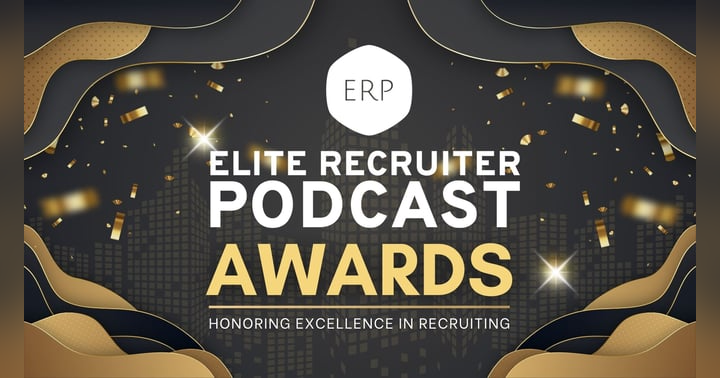The Real Needs of Internal Talent Acquisition Teams
Welcome to the blog! In this post, we're diving deep into the evolving world of talent acquisition and exploring how recruiting agencies can not only survive but thrive by truly understanding and meeting the needs of internal talent acquisition (TA) teams. We'll be drawing insights from a fantastic conversation I had with Kaylee Estes, a seasoned professional with experience across agency, internal, and fractional recruiting. Her unique perspective sheds light on the gaps between agencies and internal teams, and how innovative solutions like fractional and embedded recruiting can bridge those gaps for mutual benefit. This blog post expands on the key themes and actionable strategies discussed in my latest podcast episode, "Agency vs. Internal vs. Fractional: Kaylee Estes on Revenue, Relationships, and Reinventing Recruiting for 2025." So, let's jump in and uncover the real needs of internal TA teams!
Introduction: Understanding the Evolving Needs of Internal Talent Acquisition
The talent acquisition landscape is constantly shifting. Gone are the days of simple transactional relationships between agencies and internal TA teams. Today, internal teams face immense pressure to find top talent quickly, efficiently, and within budget. They are navigating increasing complexity, from sourcing candidates with specialized skills to managing employer branding and ensuring a positive candidate experience. Adding to this complexity are market fluctuations, economic uncertainties, and the ever-increasing demand for agility and adaptability. Internal TA teams are often stretched thin, lacking the resources and expertise to effectively address all these challenges simultaneously. This is where recruiting agencies can step in, not just as vendors, but as strategic partners.
The Gap Between Agencies and Internal TA Teams
Too often, agencies approach internal TA teams with a one-size-fits-all solution, focusing on filling specific roles without understanding the broader organizational context or long-term goals. This transactional approach creates a gap, hindering the development of trust and sustainable partnerships. Internal TA teams need more than just candidate resumes; they need agencies that can understand their unique challenges, provide tailored solutions, and contribute to their overall talent strategy. This requires a shift in mindset, from simply providing a service to building a relationship based on mutual understanding and shared goals.
One of the biggest pain points for internal TA teams is dealing with agencies that don't understand their company culture or the specific nuances of the roles they are trying to fill. This leads to wasted time and effort reviewing unqualified candidates, and ultimately, frustration on both sides. Agencies need to invest time in understanding their clients' businesses, their values, and their long-term vision. This deeper understanding will enable them to identify and present candidates who are not only technically qualified but also a good fit for the company culture.
Key Insights from Kaylee Estes: Agency, Internal, and Fractional Perspectives
Kaylee Estes brings a wealth of experience from her diverse roles within the recruiting industry. Having worked in agencies, internal TA teams, and now running her own firm, she has a 360-degree view of the challenges and opportunities facing both sides. Her insights are invaluable in understanding how agencies can better serve internal TA teams.
Kaylee emphasizes the importance of empathy and understanding. She believes that agencies need to put themselves in the shoes of internal recruiters, understanding their daily pressures, their limited resources, and their need for reliable partners. She also highlights the value of transparency and open communication. Agencies should be upfront about their capabilities, their limitations, and their pricing. This honesty builds trust and fosters a more collaborative relationship.
Furthermore, Kaylee stresses the significance of specialization. In today's competitive market, generalist agencies are struggling to stand out. Agencies that specialize in a particular industry or niche are better positioned to understand the specific talent needs of their clients and provide highly qualified candidates. This specialization also allows agencies to build deeper relationships with candidates in their niche, giving them access to a wider pool of talent.
Building Trust and Long-Term Relationships
Trust is the foundation of any successful partnership. To build trust with internal TA teams, agencies need to demonstrate their expertise, their reliability, and their commitment to delivering results. This requires more than just sending resumes; it requires proactive communication, a deep understanding of the client's needs, and a willingness to go the extra mile.
One effective way to build trust is to provide valuable insights and advice. Agencies can share market data, industry trends, and best practices with their clients, positioning themselves as trusted advisors rather than simply vendors. They can also offer assistance with employer branding, candidate experience, and other areas that are critical to attracting and retaining top talent.
Another key element of building long-term relationships is consistency. Agencies need to be consistent in their communication, their delivery, and their pricing. This consistency creates predictability and reliability, which are essential for building trust. It also shows that the agency is committed to the long-term success of the partnership.
Leveraging Fractional and Embedded Recruiting Solutions
Fractional and embedded recruiting solutions are gaining popularity as a way to bridge the gap between agencies and internal TA teams. These models offer a more flexible and cost-effective alternative to traditional agency engagements. In a fractional model, an agency recruiter works on a part-time basis for the client, providing specialized expertise and support. In an embedded model, the recruiter works on-site with the client, becoming an integral part of the internal TA team.
These solutions offer several benefits for both agencies and internal TA teams. For agencies, they provide a more stable revenue stream and the opportunity to build deeper relationships with clients. For internal TA teams, they provide access to specialized expertise without the cost and commitment of hiring a full-time employee. They also offer greater flexibility and scalability, allowing teams to scale up or down as needed.
By offering fractional and embedded solutions, agencies can position themselves as true partners to internal TA teams, providing tailored solutions that meet their specific needs. These models also allow agencies to gain a deeper understanding of their clients' businesses and cultures, further strengthening the relationship and enabling them to provide even better service.
Actionable Frameworks for Shifting Your Sales Process
To effectively offer fractional and embedded recruiting solutions, agencies need to shift their sales process from transactional pitches to relationship-driven conversations. This requires a different approach to lead generation, client engagement, and proposal development.
Instead of focusing on selling specific services, agencies should focus on understanding their clients' challenges and offering solutions that address those challenges. This requires asking probing questions, listening actively, and demonstrating empathy. It also requires being willing to customize solutions to meet the specific needs of each client.
The sales process should also be more collaborative, involving multiple stakeholders from both the agency and the client. This ensures that everyone is aligned on the goals, the expectations, and the deliverables. It also fosters a sense of partnership and shared ownership.
Finally, the proposal should be clear, concise, and focused on the value that the agency will deliver. It should clearly outline the scope of work, the deliverables, the timeline, and the pricing. It should also include testimonials and case studies to demonstrate the agency's expertise and track record.
Tools and Time Management Tips for Recruiters
In today's fast-paced environment, recruiters need to be efficient and effective in their use of tools and time. There are numerous tools available to help recruiters streamline their workflow, automate repetitive tasks, and improve their communication.
Some popular tools include applicant tracking systems (ATS), customer relationship management (CRM) systems, and social media management tools. These tools can help recruiters manage their candidate pipeline, track their client interactions, and promote their services on social media.
In addition to using the right tools, recruiters also need to be effective in their time management. This requires prioritizing tasks, setting deadlines, and avoiding distractions. It also requires being willing to delegate tasks to others when appropriate.
Some useful time management tips include using a calendar to schedule appointments and deadlines, creating a to-do list each day, and setting aside specific times for email and social media. It's also important to take breaks throughout the day to avoid burnout.
Sponsor Message: The Agency Blueprint
Before we continue, I want to take a moment to thank our sponsor, The Agency Blueprint. The Agency Blueprint is the go-to coaching program for recruiters who want to scale without the chaos.
If you're making placements but your revenue is inconsistent, your client pipeline is unpredictable, or you're still in the delivery trenches every day – this is how you fix that. The Agency Blueprint provides the exact blueprint used by top recruitment agencies to consistently land clients, improve delivery, and scale with automation, AI and a remote team.
James Blackwell, the founder of The Agency Blueprint, built a 7-figure recruitment agency in the UK and now mentors recruiters and agency owners around the world. His team works closely with a select group of driven individuals ready to scale.
Head to www.theagencyblueprint.com to book your free Recruiter Strategy Call and find out if it's the right fit for you.
Resources and Links Mentioned in the Episode
Here are some of the resources and links mentioned in the podcast episode:
- AI Recruiting Summit 2025 – Registration: https://ai-recruiting-summit-2025.heysummit.com/
- Finish The Year Strong 2025 – Registration: https://rock-the-year-2025.heysummit.com/
- Free Trial of PeopleGPT and its AI Agents: https://juicebox.ai/?via=b6912d
- Free Trial of Talin AI: https://app.talin.ai/signup?via=recruiter
- Signup for future emails from The Elite Recruiter Podcast: https://eliterecruiterpodcast.beehiiv.com/subscribe
- YouTube: https://youtu.be/gsBlVST5MOo
- Follow Kaylee Estes on LinkedIn: https://www.linkedin.com/in/kaylee-estes/
- With your Host Benjamin Mena with Select Source Solutions: http://www.selectsourcesolutions.com/
- Benjamin Mena LinkedIn: https://www.linkedin.com/in/benjaminmena/
- Benjamin Mena Instagram: https://www.instagram.com/benlmena/
Conclusion: Adapting to the Future of Recruiting
The future of recruiting is about building strong partnerships, understanding the needs of internal TA teams, and providing tailored solutions that meet those needs. By shifting their sales process, leveraging fractional and embedded recruiting solutions, and utilizing the right tools and time management techniques, agencies can position themselves for success in this evolving landscape. Remember to check out the full discussion with Kaylee Estes on the Elite Recruiter Podcast to gain even more insights and actionable strategies. The recruiting world is changing, and it's time to adapt and thrive!










